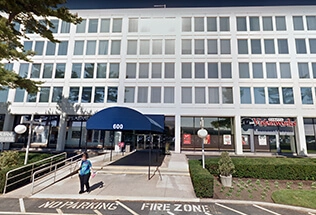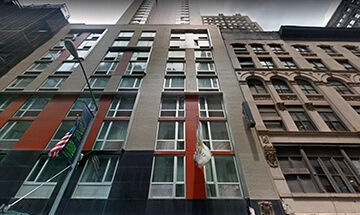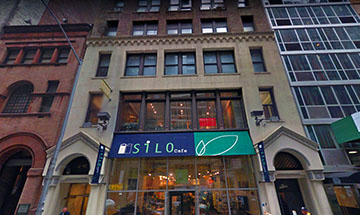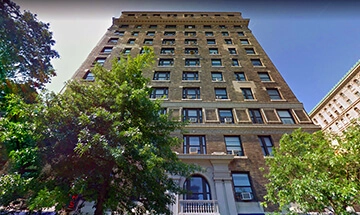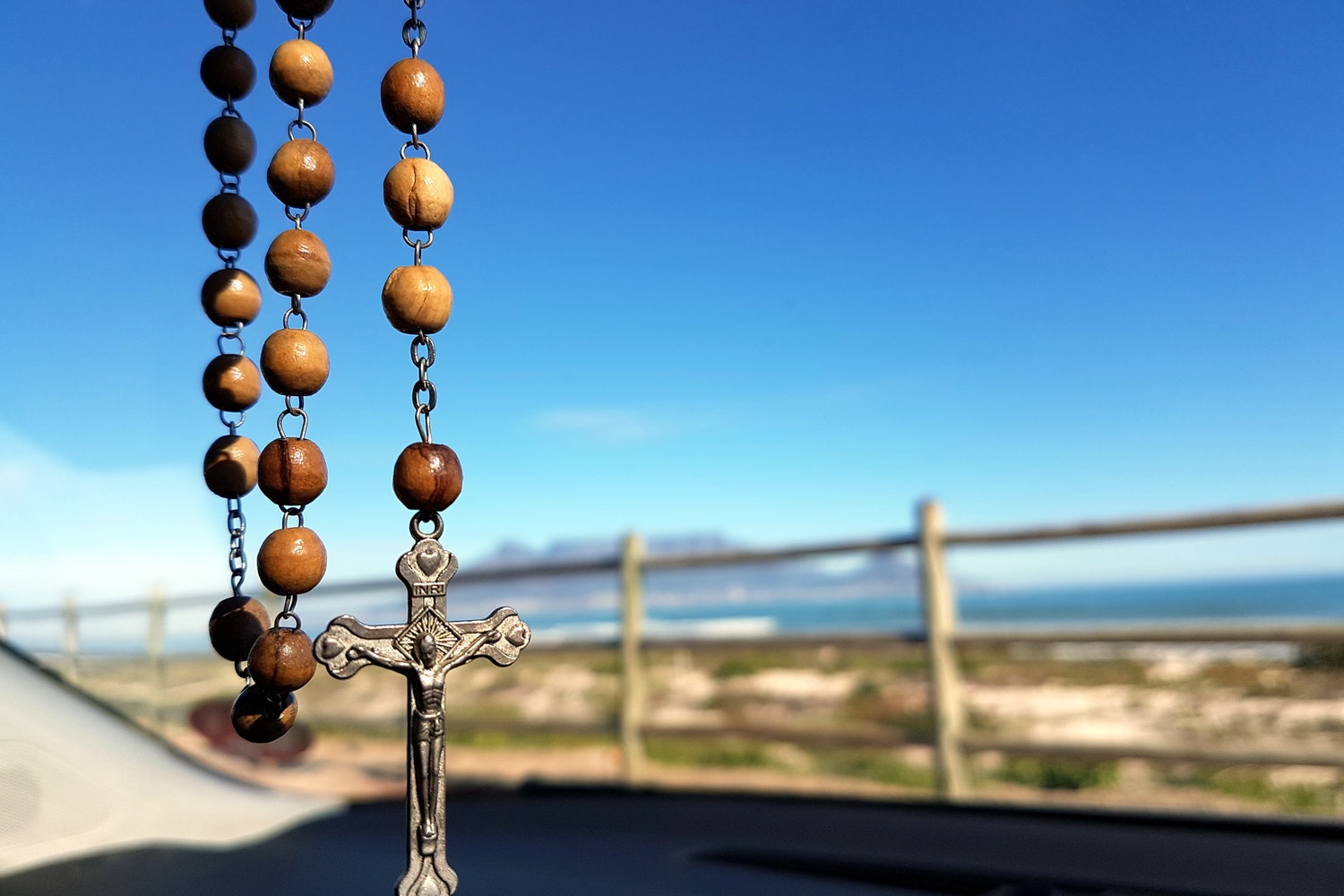When you sign up for auto insurance, homeowners insurance, and many other insurance policies, you might come across an act of God clause. The act of God clause determines when the insurance company is responsible for providing coverage. It also establishes what you or others can be held liable for in the event of a lawsuit or accusation of negligence.
Acts of God can impact insurance coverage, lawsuit liability, and many other legal factors. Today, we will take a closer look at the meaning of act of God clauses.
For more information and to determine whether an act of God clause clears you or another of liability, contact Schwartzapfel Lawyers today at 1-516-342-2200 for a free case evaluation.
What Is an Act of God”?
An act of God, sometimes called a force majeure event, is any sudden and/or unexpected event that cannot be under reasonable control by humans. In terms of insurance policies and liability, acts of God are events in which people or parties cannot be reasonably held accountable by insurers.
The key differentiation between an act of God and any other accident or incident is reasonable preparation. For example, a business owner can reasonably be expected to prepare for the possibility of ice outside their establishment’s entrance. Thus, they could be held liable for slip and fall injuries if a customer slips and falls outside their business during business hours.
However, a business owner cannot reasonably be expected to prepare for a hurricane flooding their business if they don’t live in a flood-prone area. Then, if a customer is injured due to a hurricane flooding that store, the business owner will not likely be held liable for damages or injuries suffered as a result.
Acts of God Examples
Here are some specific examples of acts of God according to both common and contract law:
- Wildfires
- Earthquakes
- Windstorms (e.g., tornadoes)
- Heavy rainstorms (e.g., monsoons, thunderstorms)
- Flooding
- Lightning strikes
- Hail
- Tsunamis
As you can see, most acts of God are natural disasters that, as they are outside of human control, are capable of causing a variety of damages.
Again, the key factor to pay attention to is whether a party could have reasonably prepared for the damaging incident. That’s why a wildfire is deemed an act of God under most circumstances, but a fire caused by faulty wiring in a restaurant is not.
In the former case, a business owner cannot be expected to control whether wildfires start. In the latter, the business owner is responsible for ensuring that the wiring in their business is safe at all times.
For more examples, or for an assessment of your particular claim, call Schwartzapfel Lawyers today at 1-516-342-2200 and speak with one of our leading insurance attorneys at no charge.
What Is an Act of God for Insurance Companies?
An act of God for insurance companies is an event that can’t be predicted or prevented by a policyholder. For instance, imagine a circumstance in which a driver parks their car under a tree that has never shown signs of falling over, nor does it appear weak or damaged in any way.
Nonetheless, the driver’s vehicle is crushed during a storm over the following night. The heavy winds cause the tree to tip over, landing on the car as a result.
If the car owner has a comprehensive car insurance policy, they could be covered under an act of God clause. The act of God clause covers all acts of God that can damage a vehicle through no fault of the car owner. Then, victims can receive an insurance payout to cover repairs or vehicle replacement.
Essentially, an act of God is an unpredictable and/or uncontrollable phenomenon that may affect your covered property or your person. However, insurance companies also use act of God clauses to exclude certain types of coverage on flood insurance, home insurance, and real estate insurance contracts, as well as other policies. For instance, if a New York driver has only the minimum amount of insurance coverage legally required, they might find that their policy has an act of God clause.
This act of God clause can exclude coverage for uncontrollable and/or unpredictable events when the driver makes an insurance claim. In this case, if the driver’s vehicle is damaged due to an act of God, the insurance company is not liable to provide an insurance payout based on the policy’s act of God provision.
Because of this, insurance policyholders should always read their policies carefully to adhere to their contractual obligations. They should double and even triple-check to see what coverages and exclusions are included regarding acts of God.
Does Auto Insurance Include Act of God Clauses?
Auto insurance can include act of God clauses, but it is not required. Most comprehensive automobile insurance policies do include coverage for acts of God. However, this is an optional type of insurance not legally required by New York State. Instead, you are only legally required to have basic personal injury protection insurance, bodily harm coverage, and uninsured motorist coverage.
That said, comprehensive auto insurance coverage can be beneficial. In addition to protecting you from the above-defined acts of God, comprehensive coverage also protects you from damage or injuries due to events such as fire, vandalism, and even terrorism.
To learn more about auto insurance claims in relation to act of God clauses, dial 1-516-342-2200 and allow Schwartzapfel Lawyers the honor and privilege of assisting you in this matter and more. Or, if you would prefer to first study the subject a bit more before taking advantage of this free consultation, please continue reading.
Does Homeowners Insurance Include Act of God Clauses?
Just like auto insurance, not all homeowners insurance policies include coverage for acts of God. In most cases, standard homeowners insurance policies cover damage(s) from rain, wind, or hail.
However, those standard policies do not include coverage due to floods, volcanoes, and earthquakes, which are all generally considered acts of God. If you have a more expensive homeowners insurance policy, you might find that you are covered in the case of these events.
Different homeowners insurance policies have different standards and exclusions based on location. For instance, some homeowners insurance policies for coastal states or in flood-prone areas do include flood protection by default. Others may include tornado protection by default.
The most common kind of homeowners insurance (dubbed HO-3 insurance) specifically insures your home’s structure for every common peril, exempting certain exclusions. Even if your homeowners insurance does protect you from natural disasters and acts of God, your insurance provider may try to look for other causes of damage in an effort to avoid paying for the loss.
How Can You Know Whether Your Insurance Includes an Act of God Clause?
You have to read your insurance policy and look carefully to see what it covers and what it excludes. Auto insurance, homeowners insurance, and other insurance companies may not use act of God” terminology when describing uncontrollable and/or unpredictable events.
If you aren’t sure whether your insurance policy includes an act of God clause, you should contact knowledgeable attorneys and get them to parse the document for you. They can read through the policy and explore what exactly you are covered for and what your coverage excludes. Then, you can make an informed decision and determine whether you want to upgrade to a more comprehensive policy in the future.
For help with your insurance assessment, call Schwartzapfel Lawyers now at 1-516-342-2200! And remember: While your consultation will be free, the advice offered to you may help you financially many times over in the long run.
How Do Act of God Clauses Affect Liability?
In addition to affecting insurance, acts of God clauses can affect liability in cases of personal injuries. Imagine a scenario in which a business patron enters an establishment just as lightning strikes that business. The person is injured due to the lightning strike because they were holding the metal door frame at the same time.
The person that attempts to sue the establishment to recover damages so they can pay for their medical bills. However, the business owner claims that they cannot reasonably have anticipated and protected against the lightning strike. It was a true act of God.
If the judge in this case agrees, it is unlikely that the business owner will be held liable for damages, and the injured party will have to seek compensation elsewhere. In this way and more, act of God clauses can affect who is liable for personal injury damages and other expenses.
However, as in the earlier examples, this is not always a clear determination. For instance, if the establishment in question is located in an area prone to lightning strikes and has a large metal element on the roof that can attract lightning, the business owner could be held liable for injuries suffered due to lightning strikes.
How To Tell When an Act of God Affects Your Case
It can be difficult to determine whether an act of God affects liability if you wish to sue a negligent party. For example, say that you are involved in an auto accident during inclement weather. You and the other driver are both trying to drive in the middle of a snowstorm, but the other driver was apparently negligent, leading to the accident and your sustained injuries.
Is the driver truly at fault, or is the weather? Experienced legal representatives can help you determine this and recommend whether you should proceed with a lawsuit or pursue other means of compensation.
Alternatively, if someone is trying to sue you or your business for damages, an act of God defense could help you avoid liability. Your legal representatives can help you break down whether an act of God can reasonably be claimed to have been responsible for the plaintiff’s injuries.
Since this can be crucial no matter which side of a legal dispute you are on, you should hire well-qualified attorneys quickly. Schwartzapfel Lawyers has helped New Yorkers just like you through a variety of tort cases on both sides. Contact us today for a free consultation at 1-516-342-2200!
Act of God Events vs. Force Majeure Clauses
Although they are similar and sometimes used interchangeably, act of God clauses and force majeure clauses are technically distinct concepts. A force majeure clause, like an act of God clause, includes unpredictable acts of nature. Where the two differ is that force majeure clauses also include disruptions due to extraordinary circumstances caused by human intervention.
Examples of force majeure provisions include:
- Pandemic outbreaks, including the coronavirus
- War and the damages associated with it
- Government lockdowns
- Acts of terrorism
Force majeure clauses pertain to unpredictable and/or uncontrollable events caused by humans in general, though not by individuals or smaller parties.
Contact Schwartzapfel Lawyers Today!
Act of God clauses are crucial parts of insurance policies, and they can determine whether you have grounds for a lawsuit. An act of God clause may also protect you from having to pay damages to an injured party if they try to sue you.
As it can be difficult to determine whether an act of God clause will affect your legal case, you should contact trusted trial attorneys like Schwartzapfel Lawyers right away.
As New York City’s leading personal injury attorneys, we can help you determine whether a business owner or party is liable for a lawsuit or if you can reasonably be held accountable for another’s injuries. Contact us today for free legal advice by visiting us online or calling 1-516-342-2200.
But you shouldn’t wait, as your window to file a claim and recover damages may soon close forever. To keep this from happening, act now and have Schwartzapfel Lawyers fight for you!
Sources:
Schwartzapfel Lawyers, P.C. | Fighting For You™™
Act of God | Wex | US Law | LII / Legal Information Institute

